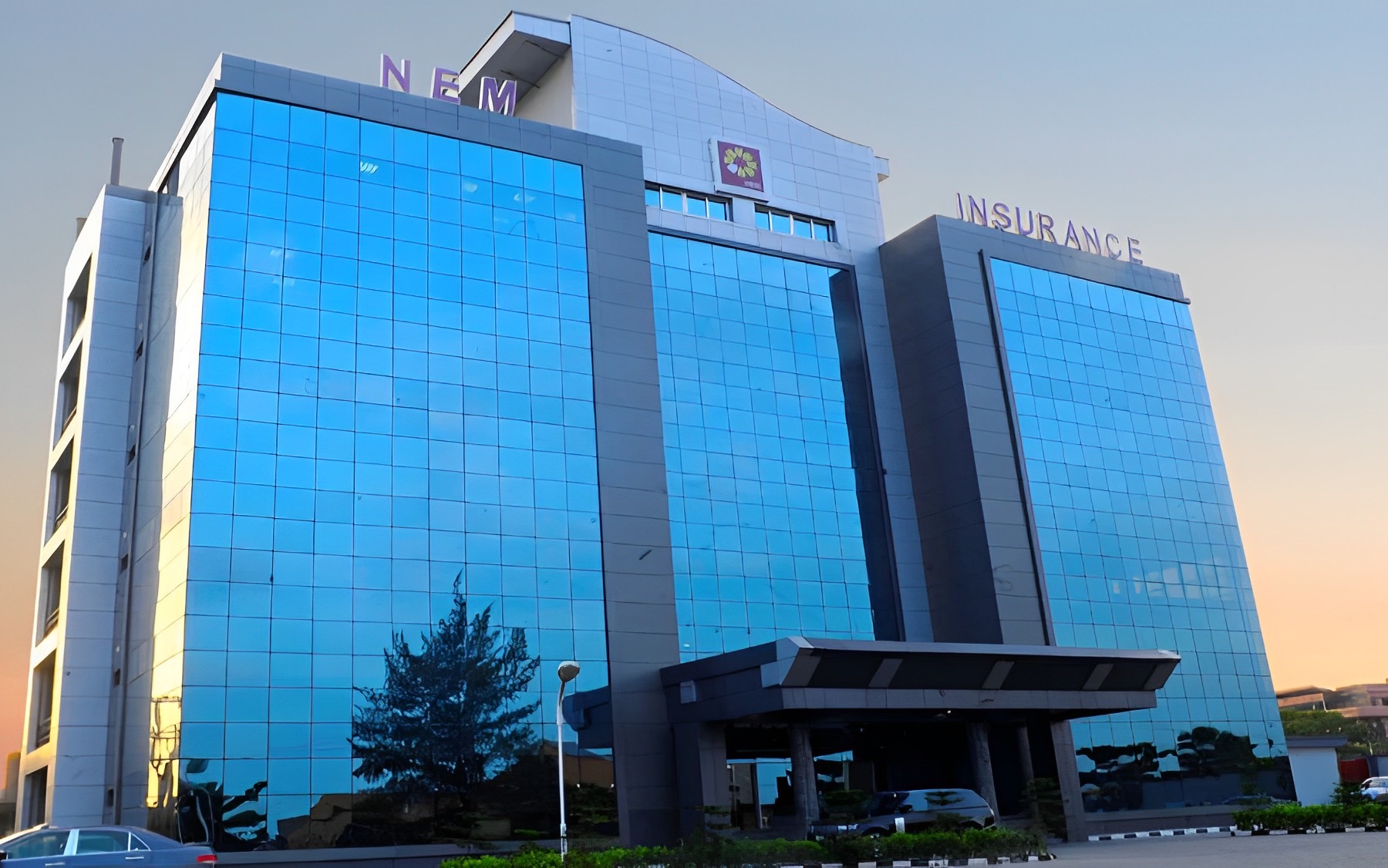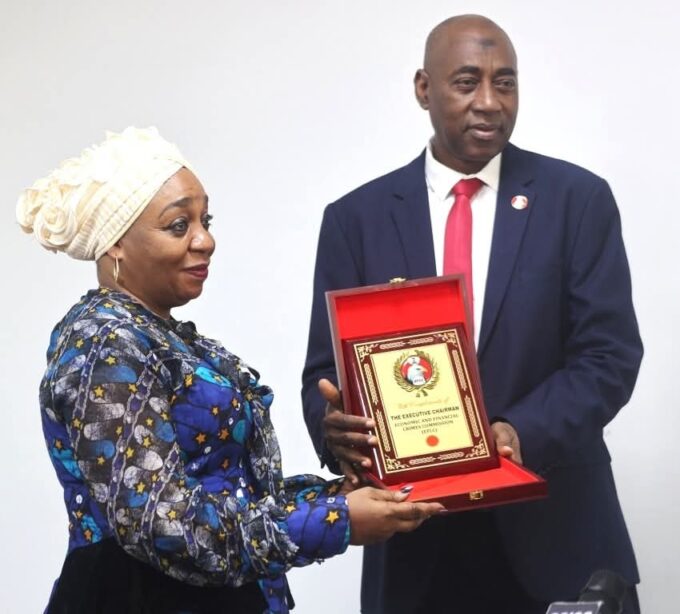NAICOM Logo
BY NKECHI NAECHE—-The Federal High Court sitting in Lagos, on Monday ordered that the interim injunction placed on National Insurance Commission (NAICOM) from implementing Tier-Based Minimum Solvency Capital, (TBMSC), shall continue in force until NAICOM brings an application to the court to set it aside.
Hon. Justice Ayo Emmanuel held that until the time the court will consider whether it should be set aside or remain until the end of the suit.
Sir Nnamdi Nwosu and Seven others shareholders had last month filed an application to stop NAICOM from implementing Tier-Based Minimum Solvency Capital, (TBMSC).
The court then gave a directive that NAICOM should put on hold its proposed minimum solvency capital policy for insurers in the country until after the expiration of 30 days pre action notice shareholders of insurance companies served the commission on the 6th of September, 2018.
The case with suit no 1483 of 2018 FHC/L/CS/ 1483/18 was later adjourned today to December 10, 2018.
Following the court order the commission last week implored insurance companies to continue to operate on subsisting regulatory framework prior to the issuance of the circular on Tier-Based Minimum Solvency Capital (TBMSC).
The insurance industry regulator, stated this in a circular tagged, Update on the Implementation of the Tier-Based Minimum Solvency Capital Policy for insurance Companies in Nigeria, signed by Director, Authorization and Policy, NAICOM, Leonard Akah.
NAICOM noted that in compliance with the extant rules and the injunction issued by the Federal High Court regarding the TBMSC framework which was to take effect from October 1, 2018, it wishes to clarify that the status quo will be maintained and that insurers are to continue to operate on subsisting regulatory framework prior to the circular.
It maintained that appropriate regulatory directive would be advised upon conclusion of the suit.
NAICOM had on August 2018 announced that the insurance companies Tier-based recapitalisation commencement date to October 1, as against January 1, 2019 it earlier announced in the month of July.
According to the commission the new cicular mandated all insurance companies to recapitalise and communicate to NAICOM the tier they intended to play in before October 1.
The commission noted that only companies that meet the respective tier requirements shall lead on new businesses in those categories with effect from October 1.
“Companies shall be assessed, in the first instance, on their approved financial statement for 2017, and audited half year account for 2018.
“However, where a company is yet to obtain approval for its 2017 financial statement, its last approved audited accounts will be used for the assessment.” NAN reports that underwriters interested to play in the tier 1 category are expected to increase their capitalisation from N5 billion to N15 billion.
The TBMSC structure is a complementary measure to the ongoing implementation of the Risk-Based Supervision, RBS, programme. It is a three level model which specifies capital requirement for each tier based on their respective risk classification.
Tier-3 of the TBMSC stipulates that companies will operate on the existing minimum paid up capital of N2 billion for life, N3 billion for non-life and N5 billion for composite underwriters. Life companies will only be permitted to underwrite individual life policy, health insurance, and miscellaneous insurances.
Non-life companies will only underwrite fire, motor, engineering (only classes covered by compulsory insurance), general accident, agriculture and miscellaneous insurances.
Composite company
To operate in tier-2 of the TBMSC, companies must have 50 percent additional on the capital base. Life companies must have N3 billion capital base and will underwrite all tier-3 risks and group life assurance.
Non-life companies must have N4.5 billion and will underwrite all tier-3 risks, as well as engineering (all inclusive), marine, bonds credit guarantee and suretyship insurances.
For tier-1 players, companies must have 200 percent additional on the capital base. While life companies must have N6 billion capital base and will underwrite all tier-2 risks and annuity, non-life companies must have N9 billion capital base and will underwrite all tier-2 risks, as well as oil & gas, (oil related projects, exploration & production) and aviation insurances.
In essence any composite company, that is life and non-life, that wants to be in tier-1 must have N15 billion, tier-2 must have N7.5 billion while tier-3 must have N5 billion.
Companies’ position
Analysis of 2017 financial reports of companies show that firms that could fall under the tier-1 composite category are Leadway Assurance Company Limited with shareholders funds of N52.4 billion; Custodian and Allied with shareholders funds of N35.4 billion; Axa Mansard with shareholders funds of N20.3 billion; Wapic Insurance with N17.9 billion; as well as Zenith Insurance with N23.5 billion.
Under the tier-1 category for non-life business, companies that could fall under it are Linkage Assurance with N19.9 billion; Universal Insurance with N10.4 billion; as well as Nem Insurance with N9.7 billion.
Companies that could fall under the tier-2 composite category are Aiico insurance with N10.5 billion; NSIA Insurance with N10.7 billion; Lasaco Assurance with N8.2 billion; Mutual Benefits Assurance with N8.1 billion; as well as Niger insurance with N7.8 billion.
Non-life category
Under the tier-2 non-life category, companies that could fall under it are Prestige Assurance with N7.5 billion; Consolidated Hallmark with N4.7 billion; Law Union & Rock with N6.5 billion; Saham Unitrust with N7.8 billion; Sovereign Trust with N5.5 billion; as well as Regency Alliance with N5.2 billion.
For the tier-3 composite category, the companies that could fall under it are Great Nigeria Insurance with N5.9 billion; as well as Royal Exchange with N5.6 billion. Companies that could fall under tier-3 non-life category are Sunu Assurance with N4.3 billion; as well as Guinea Insurance with N3.0 billion.
Arm Life as well as Metropolitan Life companies that underwrite life businesses, both fall into tier-2 category with N3.2 billion; and N4.1 billion respectively.













